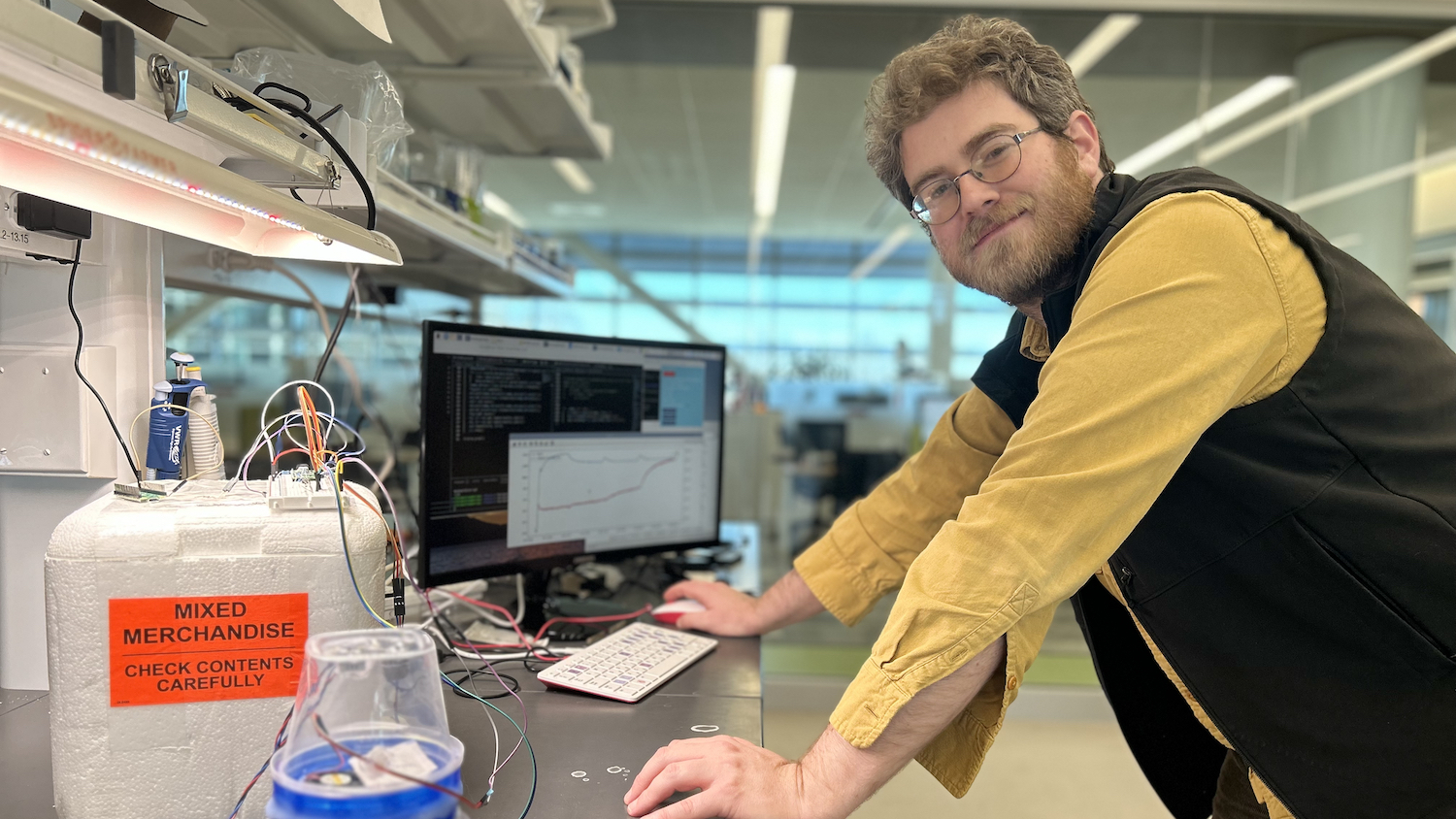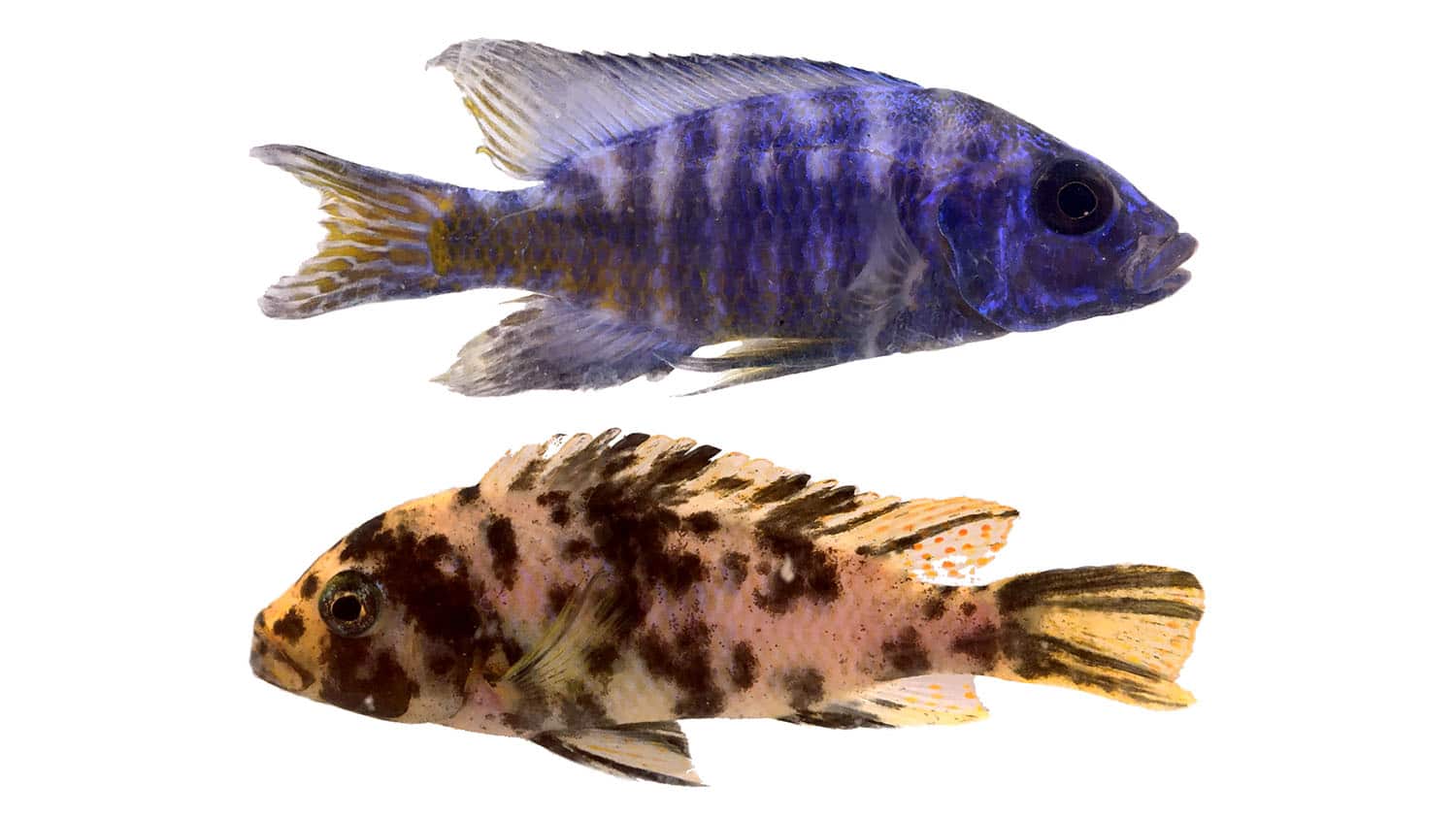Starting Strong
The N.C. Plant Sciences Initiative’s Startup Program provides expertise and resources to help emerging companies bring problem-solving agricultural technologies and services to the marketplace.

Turning ideas into impactful solutions can be a hit-or-miss proposition. To get more agricultural technology hits, the new North Carolina Plant Sciences Initiative Startup Program helps researchers, alumni and others translate their ideas and discoveries into viable products and services that benefit agriculture.
Through the program, based at NC State University’s Plant Sciences Building, seven North Carolina startup companies are tapping university and agricultural technology industry expertise and resources, including a newly established commercialization advisory council.
They’re also taking advantage of access to one of the world’s most advanced plant sciences facilities, with specialized laboratories, core facilities and a new business incubator.
Mission-driven entrepreneurship
The startup program is part of a larger N.C. PSI commercialization and entrepreneurship program — one that N.C. PSI Executive Director Adrian Percy sees as crucial to meeting the initiative’s mission of solving grand challenges in agriculture and the environment through interdisciplinary, team-based science, partnerships and talent development.
“We see this benefiting many different groups both in and outside the university: first of all, for students, for faculty to learn some of the skills and opportunities there are in entrepreneurism, that will help them along their journey,” Percy says.
“Secondly, we hope that this will be one of the biggest sources of impact that the PSI can deliver to our growers across the state of North Carolina by helping them get access to new transformational technologies and support tools,” he adds.
“And thirdly, I think our being able to create new companies will be an economic advantage for the state of North Carolina. Some of these small companies will evolve and mature into larger companies that will hire people that will be producing products that benefit not just our citizens in North Carolina, but also more broadly across the U.S. and even globally one day.”
About the startups
The first small companies to join the startup program are pursuing diverse products aimed at solving different agricultural problems.
For example, Eli Hornstein, who holds a Ph.D. from NC State in plant metabolic engineering, has started Elysia Creative Biology to help slow climate change by producing bioengineered crops that can be turned into feed that reduces the emission of methane, a greenhouse gas, from cows.
Ross Sozzani, a plant and microbial biology professor and N.C. PSI platform director for plant improvement, has started Raleigh Biosciences to generate cell type-specific gene expression data and use it to revolutionize the agricultural industry through targeted control of gene expression. Her goal: to help researchers expedite crop development for sustainable food production.
Other incorporated companies in the program include Soteria Formulations Inc., Flip Biosystems and Hoofprint Biome.
What the companies get from the program
To be eligible for the startup program, companies must have licensed NC State intellectual property, be owned by university faculty members, postdoctoral researchers or students, or be alumni who graduated less than two years before they apply. A commercialization advisory council reviews applications from companies wishing to take part.
Admitted companies gain access to the building, a chance to apply for space in its new incubator, networking opportunities, high-level mentoring and assistance with business plan development and marketing.
Steve Markham, co-director of the council and Goodnight Distinguished Professor in Innovation and Entrepreneurism, said many new entrepreneurs could use help with their business models.
“Probably one of the most important things that the council does is provide assistance with business models to figure out, ‘OK, we have a new technology that detects mold spores sooner. Well, how do you turn that into a company?’” Markham says. “‘Who do you sell to? What’s the product actually going to look like? How do you price it? How do you deliver it to market on time and at the right price and quality?’ All that is necessary to be successful.”
You could look around the country and see there are only a couple of places like this.
Beyond the benefits the council provides, Elysia Creative Biology’s Hornstein says the Plant Sciences Building is a perfect fit for his current needs. Having access to talented students and faculty members working there has been key.
“You could look around the country and see there are only a couple of places like this that will let you do this type of advanced work on biotech when you’re still a very young company,” says Hornstein.
“Most places available focus on biomedical or microbial work,” he adds. “We are working with plants, so that means we don’t just need PCR machines and incubators, we need greenhouses. We need analysis centers for sequencing and chemical analysis that know how to work with plant samples — all those things are right here.”

The N.C. PSI’s Makerspace has also been an asset to Hornstein, as well as to Lirong Xiang, an assistant professor of biological and agricultural engineering and N.C. PSI affiliate faculty member who has used the space to develop a spider-like robot that can navigate dense crop canopies.
Another professor, Lina Quesada, of the Department of Entomology and Plant Pathology, discovered a way to detect the spores of a destructive cucumber disease up to two weeks before plants show symptoms, and Xiang is working with her to create a robot that can traverse farm fields to detect the spores.
Xiang and Quesada are forming a company to develop and market the technology, and they received support from the Chancellor’s Innovation Fund in August 2023.

Adding to NC State’s strengths in commercializing technology
Led by Director of Innovation Partnerships Kathleen Pitcher, PSI’s entrepreneurial programs are designed to complement services provided by the university’s Office of Research Commercialization (ORC). NC State has helped launch over 190 startups since the 1980s.
ORC Executive Director Kultaran Chohan notes, “It’s part of the university’s mission to encourage innovation, entrepreneurship and engagement with companies and to support conversion of research discoveries into new products and services — all of which are essential to facilitate the transfer of research discoveries from academic labs to the marketplace with the ultimate goal to benefit society.”
The only way for these growers to stay even, let alone get ahead, is to be constantly figuring out how to use new technologies.
Bringing innovation into the marketplace helps growers, many of whom operate on tight margins, where every gain in innovation, efficiency and labor reduction count, said Markham, of NC State’s Poole College of Management. That’s important in a state like North Carolina, where agriculture and agribusiness generate hundreds of thousands of jobs and $100 billion in value-added income.
“The only way for these growers to stay even, let alone get ahead, is to be constantly figuring out how to use new technologies,” he says.
Markham also says students benefit from learning entrepreneurism and interacting with entrepreneurs — it gives them job skills they can put to work in companies large and small. And it incentivizes researchers.
“As faculty members, we have an incredibly privileged position, and we have an obligation back to the people, the state, that support us,” he says. “But I think it’s also just terrifically fun to see something that you’ve worked on being used to create a better world.”
Building North Carolina’s reputation for ag tech innovation
Commercializing faculty members’ and students’ intellectual property related to plant sciences will also make the area’s ag tech industry even stronger. Of the 200 ag tech companies in the state, half are based in the Triangle.
Ryan Combs, executive director of the Research Triangle Regional Partnership, says that the N.C. PSI’s presence in the Triangle has attracted major international attention and put the region on the map as a destination for ag tech companies.
“As our economic development organizations work to position the Triangle as one of the premier agricultural technology hubs, the PSI has quickly become one of our top assets,” Combs says. “The PSI’s approach to research and entrepreneurship has truly made the Triangle the ideal location for ag tech startups looking to scale.”
This post was originally published in College of Agriculture and Life Sciences News.
- Categories:


